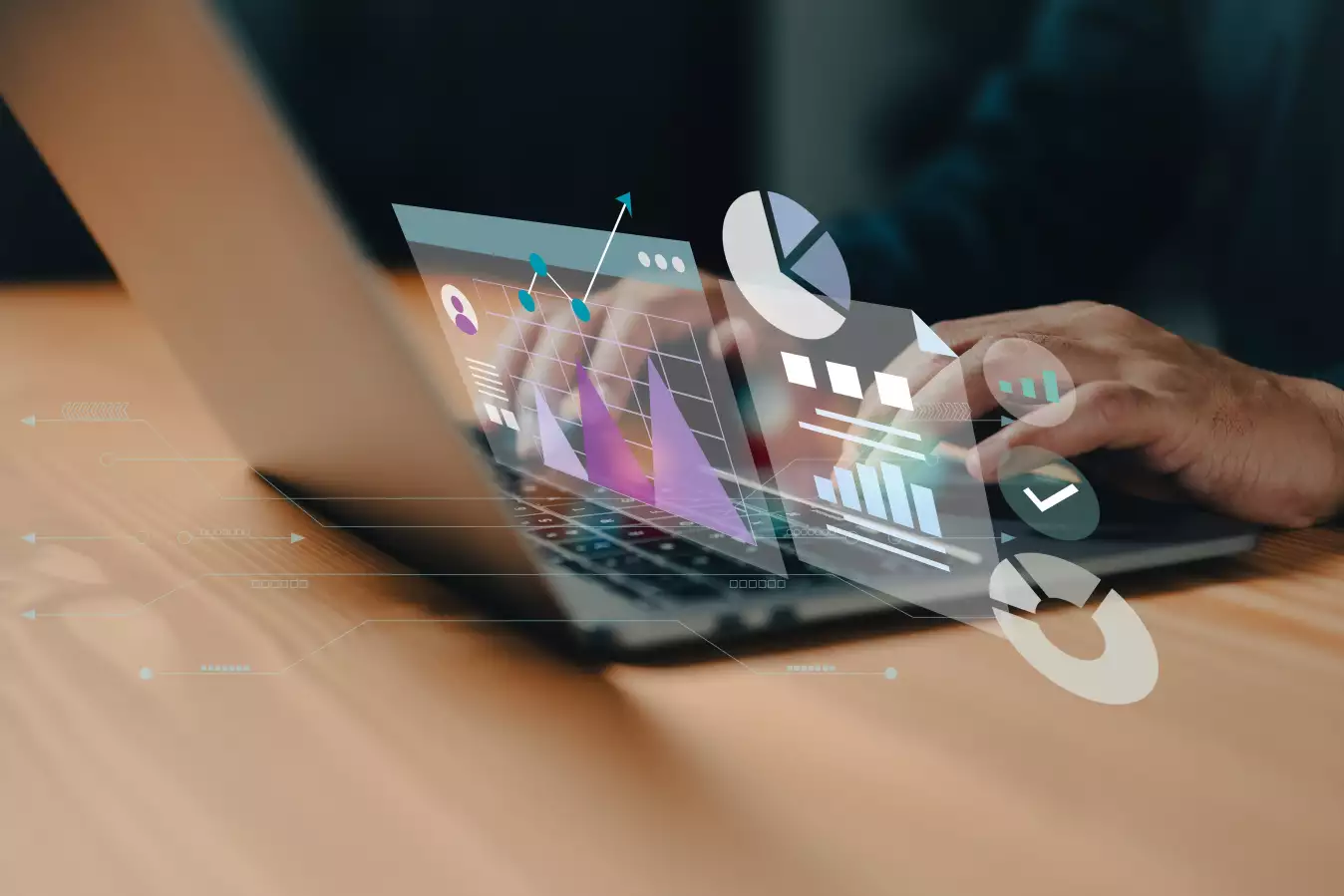We can all agree that the importance of user data cannot be overstated for SaaS companies. We use it for everything, right? Without customer data, we would be in the dark, without knowing anything about our next marketing move, our security, our performance, and most importantly, our customers.
In my interview with Hazem Hassan, Data Specialist at Scaleflex, he said something that perfectly gripped the idea of customer data: “The data I use is like a white light falling into a glass prism and the insights that I extract from it is like a spectrum of light”.
Let’s explore together this “white light” and “spectrum of light”, aka the customer data you use and what you use it for.

Everyone who is trying to sell something wishes they could see inside their potential customers’ heads, see their thoughts, see what they wish for. I bet it’s something even you thought about once.
When a customer behaves in a certain way, it always indicates a specific need or interest in your product or service. That is why it is crucial to track these behaviors. Do you want to know what your customers care about? Examine the way they interact with your business.
A blog post by Userpilot explains that this can include collecting data about which sites they visited the most, which sites they left quickly, where they clicked and scrolled using heatmaps or monitoring feature usage by feature tagging.
Collecting customer behavior can help you in:
Another purpose we have to mention for using customer data is to make visualization possible. This visualization can come in many forms, such as:
Data in and of itself is extremely difficult to understand and scan, especially if there’s a vast amount of data in our hands. Visualization can help you understand different trends, patterns, problems, or a kind of growth if you can see it visually in front of yourself. It simplifies complex data and helps.
If you have a clear vision of these, it becomes much easier to make business decisions that are informative and well-grounded.
Marketing attribution relies heavily on customer data to analyze which channels are the most effective in your marketing efforts.
In my conversation with Mohamed Hamed, Data Analyst at Psyliq, he mentioned how data is an important factor in marketing, among many other things. “Customer data helps companies target specific demographics, create more effective advertising campaigns, and measure the success of marketing efforts.”
Once you have insight into what your customers are doing, what they prefer, and what they avoid, you can refine your marketing strategy and create new initiatives that will perform better based on the data collected, and thus, will drive you more revenue. Which is always the biggest goal, right?
Within marketing attribution, data can help you understand how your customers interact with your brand, and how your marketing efforts inspire users to convert.
I briefly mentioned that collecting data on customer behavior offers a chance to see if there’s any unusual behavior or event that might make you think that someone is misusing your service or product.
According to a ChaosSearch article, these fraudulent activities can include:
When asked about what purposes they use customer data for, Mohamed Hamed also mentioned fraud prevention: “Customer data is used to detect and prevent fraudulent activities, such as unauthorized access to accounts or suspicious transactions.”
So, tracking unusual behavior is a great way to prevent people from misusing your product or service. Plus, once you learn from such incidents of fraud, you can implement new strategies for monitoring and detecting these, and further enhance your security.
Customer data also play a significant role in customer support as well. The more your agent knows about the user, the better help they can provide to answer their questions or solve their issues.
Customer data acts as a kind of guide that helps you place yourself in the situation of the customer, because you have all the information about where they are, what they are using, which sites they visited, and what kind of problems they might have encountered.
This way, the help you provide your customers with is always accurate, and personalized, and will surely satisfy their needs.
With SAAS First, all of the benefits mentioned above become possible and accessible. Here, you can add an unlimited amount of data to each of your contacts or businesses and track different events related to your customers.
These events can be, for example, creating an account, logging in, uploading a file, or making a purchase. There is no limit on the number of events you can create. It’s in your hands to decide what type of events you want to log based on your business requirements.
SAAS First offers a great platform for you to use customer data the way it will maximize your business’s operation, marketing, and sales efforts.
In summary, customer data serves as a critical tool for driving decision-making and strategy. From crafting marketing approaches to making your customer support more professional, understanding behavior, and preventing fraud, this data transforms into actionable insights that fuel business growth.
Ultimately, customer data is information that can exploit a business's full potential.
What do You use customer data for in your business?

 Csilla Fehér
Csilla Fehér

 Csilla Fehér
Csilla Fehér

 Csilla Fehér
Csilla Fehér